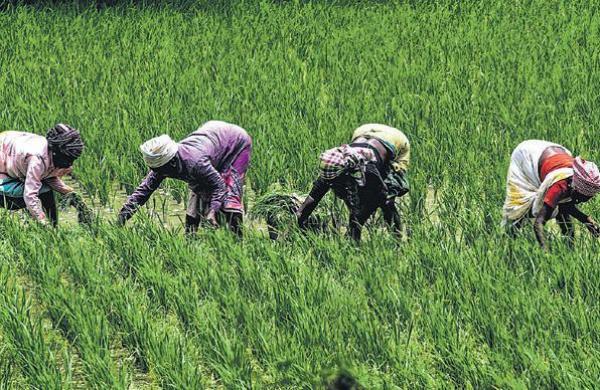Venkata Kondubhatla
Three agricultural bills have been passed in the Lok Sabha and will be tabled in the Rajya Sabha to be enforced as laws. The opposition parties, Congress, Trinamool Congress and BSP, have vehemently opposed the farm ordinances by stating that they are anti-farmers and anti-poor.
The introduction of the bills in the Lok Sabha triggered protests by farmers in thousands in Punjab, Haryana and Uttar Pradesh. Minister for Food Processing Industries Harsimrat Kaur Badal has also protested against the bills and resigned from the union cabinet. She was the only member from Shiromani Akali Dal in Modi’s cabinet.
Slamming the opposition parties, Prime Minister Narendra Modi has said that the agriculture bills, 2020, would help get rid of middlemen in the farm sector. He said that misinformation is being spread that farmers won’t get right prices. They are forgetting how informed our farmers are, he said while inaugurating ‘Kosi Rail Mahasetu’ in Bihar on Friday.
“Fake news is being spread that paddy and wheat will not be procured by government agencies from farmers,” Modi added.
What the farm bills seek?
Farmers Produce Trade and Commerce Bill, Farmers Agreement of Price Assurance and Farm Services Bill and Essential Commodities Amendment Bill are the three bills passed in the Lok Sabha.
The government describes the three bills as a historic step to unlocking the vastly regulated agricultural markets in India. The bills will improve competition and promote private investment, the Agriculture Minister Narendra Singh Tomar said.
Further, the bills propose free trade of agri-produce. The farmers are enabled to sell their produce anywhere in the country. No market fee like cess or taxes will be levied on the produce sold. The bill also seeks electronic transaction platform for trade.
The Essential Commodities Amendment Bill seeks to remove commodities, such as onion, potatoes, pulses, cereals and oils seeds from the list of essential commodities. This means that the government would no more regulate the trade and supply of these food items.
Ryots fear dismantling of MSP
The farmers fear that the new legislature would take away the Minimum Support Price (MSP) mechanism and leave the farming community at the mercy of big corporates.
However, the union agriculture minister has said that the MSP mechanism would continue and would not be impacted by the two bills. The bills will ensure farmers get better prices, he said.
Mandi fees
Agricultural states like Punjab and Haryana fear losing revenue as they cannot collect mandi fees if farmers began selling their produce anywhere in the country. If the central procurement agencies purchased farm-produce from mandis, then states would lose the revenue in the form of commissions.




